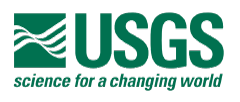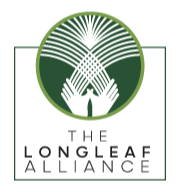General Resources and Publications
In the working lands library, you will find project reports, presentations, peer-reviewed studies, and more.
Breakfast with Biologists July 24, 2025
Featured speakers from Ducks Unlimited, New Jersey Audubon, Quail & Pheasants Forever, Xerces Society, and the U.S. Fish & Wildlife Service will discuss NRCS programs and funding opportunities for upland and wetland habitat restoration, enhancement, and creation projects
Statement of Work: Evaluating Efficacy of Agricultural BMPs in the Upper Clinch, Powell, and Holston River Drainages
STATEMENT OF WORK FOR COOPERATIVE AGREEMENT 68-3A75-18- VIRGINIA POLYTECHNIC INSTITUTE AND STATE UNIVERSITY
Written Dissertation: Using an interdisciplinary approach to improve efficacy of agricultural conservation practices for protecting stream health
Dissertation submitted to the faculty of the Virginia Polytechnic Institute and State University in partial fulfillment of the requirements for the degree of Doctor of Philosophy In Fisheries and Wildlife Sciences, 2024
Maximizing the Water Quality Benefits of Wetlands in Croplands
Conservation Effects Assessment Project (CEAP) Conservation Insight
Storage and Release of Water in Coastal Plain Wetlandscapes
Conservation Effects Assessment Project (CEAP) Conservation Insight
Monarchs in the Southeast
A guide on the life history, common threats, and conservation measures you can implement to support Monarchs!
Aquatic Connectivity Framework (ACF) Fact Sheet
The Aquatic Connectivity Framework (ACF) is a WLFW partnership effort that brings together public and private partners to tackle critical threats to watersheds across 16 states in the eastern and central U.S.
Bog Turtle Wildlife Habitat Evaluation Guide (WHEG)
WLFW uses WHEGs to evaluation before and after conditions anticipated from a contract.
People For Pollinators Social Media Toolkit
It is time to protect our pollinators! This toolkit will give you the tools you need to create an eye-catching campaign on social media quickly and easily.
Virginia 327: Conservation Cover
This standard is utilized for establishing vegetative cover to enhance wildlife habitat.
Virginia 315: Herbaceous Weed Treatment
This standard allows for the removal or control of herbaceous weeds including invasive, noxious, and prohibited plants. This practice is applicable for areas that have excessive Phragmites australis growth allowing for removal and management of these areas to let native plants to reestablish.
Virginia 314: Brush Management
This standard allows for the removal and management of woody plants including invasive and noxious plants. Using this standard will allow landowners with existing degraded wetlands or waterfowl shallow water areas to clean up the area and return it to early successional vegetation.
American Black Duck Fact Sheet for Delaware Residents
The current fact sheet and applicable practices for the American Black Duck NRCS Working Lands for Wildlife Program in Delaware.


























